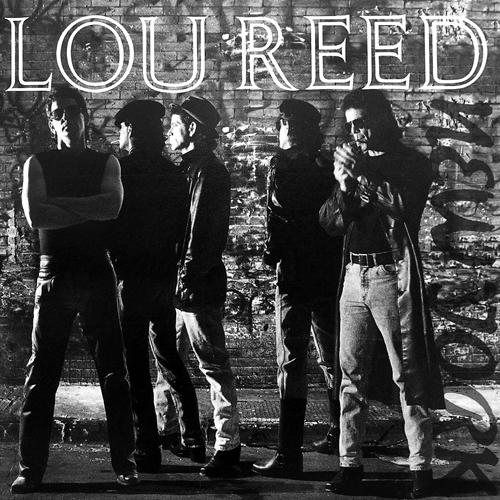Have you had enough of the endless re-appraisals of ‘Sgt. Pepper’s…’ or ‘The Velvet Underground & Nico’? Well, we have so you can forget all that! In this feature Gigslutz looks back on some of the best albums you love that have been previously given short shrift. We focus our critical eye on the difficult second albums, efforts from long-forgotten bands, overlooked classics and more underappreciated gems from the past. Read on, this time it could be your favourite!
Lou Reed – ‘New York’ (1989)
‘New York’ is a loose collection of stories which revolve around low-lifes, junkies, trannies, dealers, and poor inner city dwellers among other set to no frills rock n’ roll, and is the most conceptual of the solo work of Lou Reed. ‘New York’ sees Reed dig deep into the rich history of American pop music, from folk to jazz to country to rock to blues. It’s easily Lou Reed’s most political work of his career, as he shows he has an axe to grind with the religious right, politicians, police, the American public, and the idea of the American dream.
The late 1980s were not an easy time for New York City, while the city was host to a wide variety of exciting music that included the golden age of hip hop and Sonic Youth, the crack and AIDS epidemics were at a high point. Certain streets in Manhattan were so dangerous you couldn’t walk down them without getting mugged, even during the day.
The first four songs work as gritty snap shots of everyday life of the poor in New York City who cast aside into ghettos to be ignored. In ‘Romeo had Juliet’ Reed sings of a man who after his (sort of) girlfriend walks out is left with nothing but the drug infested squalor of his surroundings and a feeling of crushing loneliness. Reed’s New York is a ‘Halloween Parade’ of prostitutes, ‘Born Again Losers’, and ‘Lavender Boozers’. A city where a poor boy can never aspire to be more than a crack dealer on the ‘Dirty Blvd’, while the rich of the city lives of excess and glamour. Reed in possibly his most poetic fashion describes the ‘Endless Cycle’ of drug addiction and domestic violence.
‘The Last Great American Whale’ is a ballad of a majestic creature that saves an Indian chief jailed for killing a racist, only to be shot down by a crazed NRA member. Reed uses some of his most clever lyrics to address how Americans don’t appreciate the beauty of nature or wildlife.
Reed’s view of society is grim, claiming you need a “busload of faith to get by” in a world filled with ignorance and cruelty. However, on ‘New York’ Reed isn’t completely without humour or irony, with ‘Sick of You’ providing an amusing outlook on the serious problems of pollution and corruption. Reed doesn’t come off as preachy, as the dirt crusted realism of his lyrics present observations but no solutions.
Reed uses biting wit to criticize the Pope, Jesse Jackson, and former President of Austria Kurt Waldheim of anti-Semitism. He tells of a drug addicted Vietnam veteran who dies of AIDS in a way that makes it seem like your sitting in a bar with him being told the story over a drink and a smoke.
‘Straw Man’ is the masterpiece of ‘New York’ with its spellbinding bluesy drone. What makes it such a great song is not just fact that he criticizes the “million dollar (stars)”, the “racist (preachers)” and the “straw men” who deceive the population, but rather how he challenges his listener to ask themselves whether they should put up with these people any more. It’s a powerful song that is just as relevant today as it was.
http://youtu.be/0bWYAWULLHA
The straightforward rock sound is sparse in terms of production, and doesn’t have that over the top production style that a lot of records from the late 1980s had. Records like ‘New York’, along with releases of the time by Dinosaur Jr. and Pixies, paved the way for more minimal production techniques in rock music going into the 1990s.
Out of all his solo efforts, ‘New York’ is probably the album that has aged the best because of the more minimal production and raw rock sound. ‘Transformer’ and to an extent ‘Coney Island Baby’, despite being masterpieces of ‘70s pop/rock, haven’t aged well and are more difficult for modern audiences to get into with their distinctive ‘70’s sounds and frills. ‘Metal Machine Music’ still has yet to be understood by wide audiences of any time or place. 1982’s ‘The Blue Mask’ comes close to having aged as well as ‘New York’ with its heavy feedback-driven rock sound but there something undeniably early ‘80s about it. While many lyrical elements of ‘New York’ are undoubtedly constrained in current events of the late 1980s, there’s so much of it that it is still true today. The bigotry, the “TV whores”, and the “straw men” of the 1980s that Reed sings of on ‘New York’ haven’t gone away, that we all know, all you need to do is open the paper and turn on reality television and to see they’re still here.
In the liner notes, Reed challenges the listener to listen to the album in one sitting from start to finish like one would read a novel or watch a movie. The 14 songs are well woven together and are true achievements of storytelling through song. Very much like a great film or a novel, there is a wide array of components in ‘New York’ that complement each other into a wider scope of the development of themes.
‘New York’ is the record that Lou Reed was born to make. His odes to junkies, homosexuals, transvestites, and all the other groups cast aside by society had never been as vivid or intimate as any he had ever done before. His targets had never been better-chosen; his attacks had never been more on point .His dead pan delivery had never been more perfect. ‘New York’ functions as a well thought social commentary as much as it does as 57 minutes of highly engaging sophisticated rock music.






